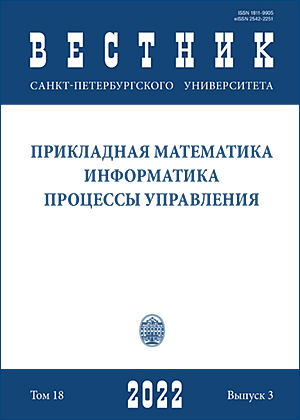Random information horizon for a class of differential games with continuous updating
DOI:
https://doi.org/10.21638/11701/spbu10.2022.304Abstract
In the paper we consider a class of the differential games with continuous updating with random information horizon. It is assumed that at each time instant, players have information about the game (motion equations and payoff functions) for a time interval with the length theta and as the time evolves information about the game updates. We first considered this type of games in 2019. Here we additionally assume that theta is a random variable. The subject of the current paper is definition of Nash equilibrium based solution concept and solution technique based on Hamilton—Jacobi—Bellman equations.
Keywords:
differential games with continuous updating, Nash equilibrium, Hamilton — Jacobi — Bellman equation, random information horizon
Downloads
References
Downloads
Published
How to Cite
Issue
Section
License
Articles of "Vestnik of Saint Petersburg University. Applied Mathematics. Computer Science. Control Processes" are open access distributed under the terms of the License Agreement with Saint Petersburg State University, which permits to the authors unrestricted distribution and self-archiving free of charge.





